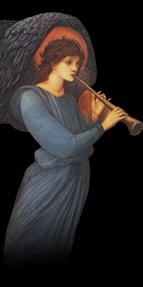 |
 |
 |
 |
 |
|
Since recently the forum part of the site has been misused by some,
from now on the messages sent to the forum will be first approved by a moderator before they can be viewed on musicolog.com.
Thus, it will take a couple of days for your messages to appear in the forum.
| Name |
Philipp |
| Subject |
Modal Composition |
| Date |
11.12.2001 |
| Time | 00:22 |
 |
| Message |
Hi,
When using the church modes,let say writing a short Piano Piece,do you have to follow any particular rule where phrases begin and end?
Best wishes |
 |  |
| Replies |  |
|
 |
| Name | Adrian |
| Subject | Palestrinian style |
| Date | 04.02.2002 |
| Time | 10:11 |
 |
| Message | The style of Palestrina is the basis of many counterpoint treatises. Its discussion surpasses this tiny forum place and would need musical examples. Mainly, its rules refer to permited or forbiden melodic leaps, harmonic intervals and chords that may seem too restrictive for contemporary ears, but are a rather useful basis and most of them emerge naturally to your sense when conceiving real devotional music. As Beethoven put it, too, that was the real church music, and the masterpieces of Palestrina, Gabrieli or Pierre de La Rue are still some of the highest samples of spirit in sounds.
All the best |
 |  |
 |
| Name | Philipp |
| Subject | Modal Composition |
| Date | 30.01.2002 |
| Time | 00:46 |
 |
| Message | Hi
Thank you for your answer.Is it possible to give some details about the Palestrinian style.Thank you in advance
Philipp |
 |  |
 |
| Name | Adrian |
| Subject | modal composition |
| Date | 07.01.2002 |
| Time | 09:41 |
 |
| Message | You don`t HAVE to do anything unless you feel it right. Or if you decided to obey the rules of Palestrinian style.
All the best. |
 |  |
| Reply This Message |  |
|
|
|
 |
 |
 |
| enter your email to receive update news |
 |
| Mr. Nobody (Jaco Van Dormael) ? |
 |
 |
|
|
|
|
|
|
